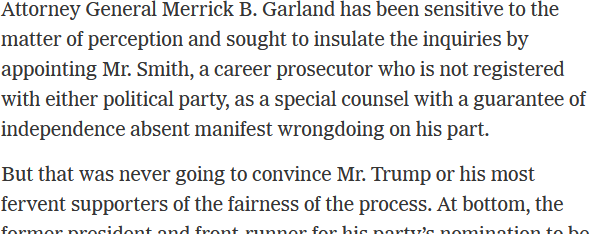#EconTwitter 🧵A question for the Econ Twitter crew. If we look at the Average Hourly Earnings (AHE) series there has been a sharp slowing of wage growth.
Annualizing over three-month periods, we went from over 6.5 percent at the start of 2022 to around 4.0 percent in recent months. This is only slightly higher than the wage growth we saw in 2018-2019, when the inflation rate was at the Fed’s 2.0 percent target.
However, the ECI shows much more modest slowing and a considerably more rapid recent rate of wage growth, going from around 5.5 percent at the start of 2022, to 4.8 percent in the first quarter.
This gap is not easily explained by composition. We know that the loss of low-paying jobs at the start of the pandemic led to a big jump in the AHE, but the by end of 2020, the change in composition should have been slowing wage growth in the AHE, as we added back low-paying jobs
As we were still adding back large numbers of low-paying jobs at the start of 2022, composition effects actually should have been slowing wage growth in the AHE at the time.
Anyhow, by the second half of 2022 and in 2023, the composition effects should no longer have had very much importance.
Also, we see the different patterns even within categories, like leisure and hospitality. The AHE was showing wage gains of 16.0 percent in this category at the start of 2022. It was 5.5 percent in the most recent three months.
By comparison, the ECI series showed a wage gain of 7.9 percent for the first quarter of 2022. It had fallen to 5.7 percent in the most recent quarter.
So, the question is, why do we have so much more slowing in the AHE than the ECI?
Let me throw out an explanation. The ECI sample is not very large, covering less than 15,000 establishments every quarter. Furthermore, the response rate had fallen to less than 50 percent since the pandemic.
(By contrast, the survey from which the AHE is derived has a sample of more than 600,000 establishments every month.) The ECI survey uses the same establishments for three years, which means that one-third of the sample is rotated out every year.
Suppose that in 2021, the newly rotated group (or the ones that responded) had lower than average pay for their industry.
Given that each rotation group would be a bit less than 5,000 establishments, and we have half of this group responding, the group would be around 2,400 establishments.
If average pay at this group was 2.0 percent lower than the industry average, it would lead to measured wage growth that was 0.7 percentage points less than the true rate of wage growth.
As these lower than average paying establishments rotate out of the ECI survey and get replaced by establishments that have pay structures in line with the industry average, it would lead the survey to report wage growth that was more rapid than the true rate of wage growth.
This would be consistent with the ECI showing more rapid wage growth than the AHE in recent months.
This story would be consistent with the considerably faster pace of wage growth shown by the AHE over the whole pandemic period. The AHE shows wage growth of 16.9 percent from the fourth quarter of 2019 to the first quarter of 2023.
The ECI shows wage growth of just 14.8 percent over this period. In the six years leading up to the pandemic (4th quarter of 2013 to the 4thquarter of 2019), wage growth in the AHE averaged 0.5 percentage points more than in the ECI.
This means that the gap had increased in 2020-2022, even as it is now being reduced with the more rapid growth shown in the ECI.
In short, we have two options in looking at the data. We can accept the two series at face value and attribute the much slower pace of wage growth in 2022 in the ECI, and then the more rapid pace in 2023 to composition issues.
Alternatively, we can consider the possibility that a skewed sample may have caused the ECI to report lower wage growth in 2022 and now more rapid wage growth as the low-paying establishments are rotated out of the sample. The second option seems more plausible to me.
• • •
Missing some Tweet in this thread? You can try to
force a refresh

 Read on Twitter
Read on Twitter




